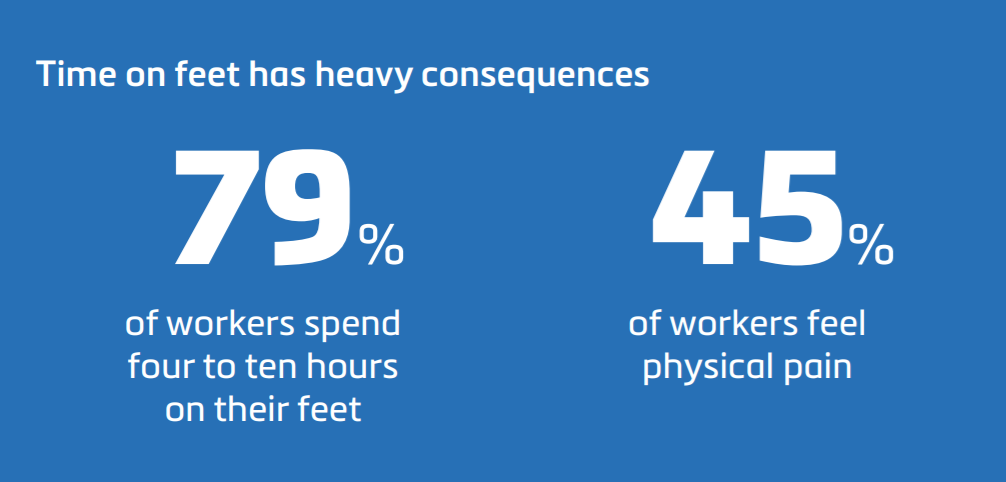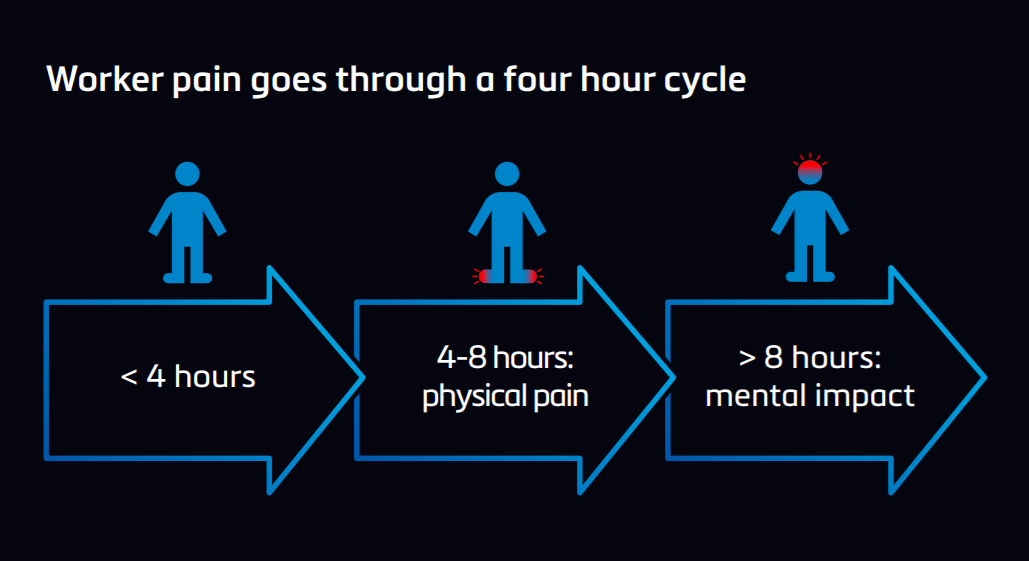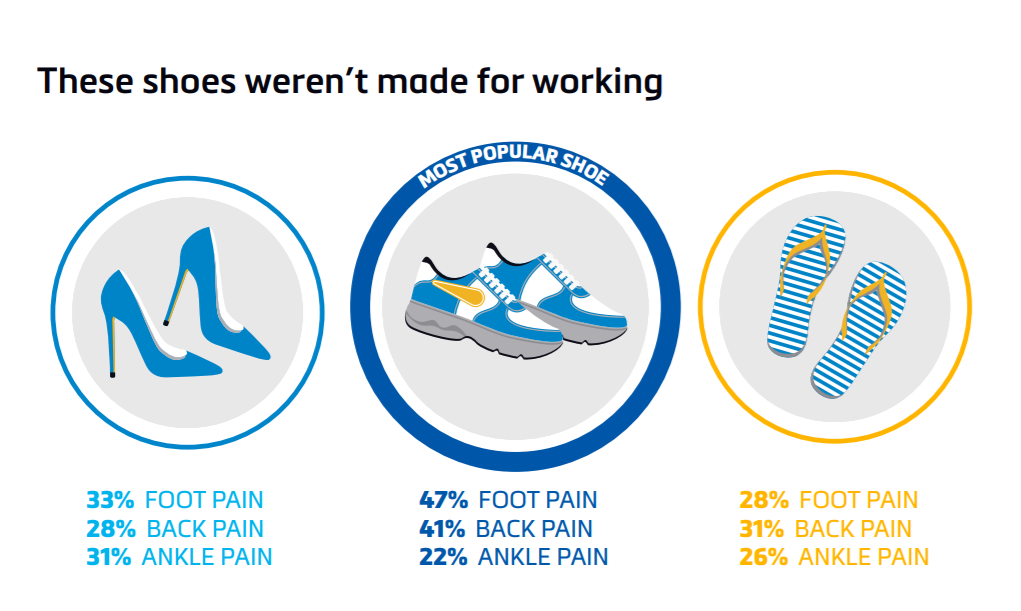Materialise released new research which shows UK hospitality and retail sectors are not just suffering from finding staff, but their workers are suffering from physical pain. The large amounts of time staff spend on their feet is impacting their quality of work and mental wellbeing, with nearly one in five, 19%, having considered their future in the sector to avoid on-the-job pain.
Resolving hospitality and retail hiring problems may require addressing employees’ physical pain. While most staffers are looking for quick fixes, or are unclear about possible solutions, experts say prevention is key and customized insoles, as used by Team GB in the Tokyo Olympics, could play an important role in keeping the UK’s hospitality and retail employees on their feet.
The study shows the majority of retail and hospitality workers, 79%, spend four to ten hours of their shift on their feet. Over a third, 34%, spend between eight and ten hours upright. This extended time standing up and walking around caused 45% of hospitality and retail workers to feel physical pain before the start of the lockdown.
The lockdown period, with many hospitality and retail workers on the furlough, brought noticeable relief with 30% of staffers reporting pain at the end of the lockdown. However, after just a few months of being back at work, some physical pain is already higher than pre-pandemic levels, with over half of employees, 52%, experiencing foot pain, up 11% from early 2020. The impact of working upright all day has kept 24% of employees off work and over a third, 37%, report a negative impact on their mental wellbeing, while four in ten, 40%, admitted the quality of their work has suffered for the same reason.
“COVID is providing the hospitality sector with a reset moment and we are looking at ways of working, hours, and conditions. As people come back from furlough they are more selective about what they want to do and more demanding as employees. It’s about making sure that we look after our people because they are our most valued and valuable resource and we need to make sure that they can be as comfortable as possible at work” said Kate Nicholls, CEO of UK Hospitality
Manufacturing on Demand
The research uncovered the pain’s impact at work goes through a four-hour pain cycle. Up to four hours working on their feet, workers feel an equal impact on quality of work and mental wellbeing. Over four hours, up to eight hours, quality of work was hit hardest, 46% in comparison to mental wellbeing, 32%. After eight hours of being on their feet, mental wellbeing was more strongly impacted, with 44% of hospitality and retail workers citing this issue.
The shoes hospitality and retail workers wear at work differed in pain impact. 31% of those wearing sandals and flip-flops experienced back pain, the biggest pain problem for this shoe. High heel wearers experienced the most ankle and neck pain, 31% and 22%. However, the most popular shoe for work is trainers, 34% wear them to work. Yet despite this being considered a comfortable option, 47% of trainer wearers experienced foot pain while at work.
To cope with the pain of working, hospitality and retail workers are focusing on the cure, not prevention. Over a third, 34%, turn to painkillers to immediately lift discomfort. For those who don’t seek a solution for their working pain, over a third, 35%, said they don’t know what the solutions are. Experts are calling for a focus on the need for prevention, which includes the use of customized insoles, yet only 28% of employees have heard of them.
“Feet take the brunt force of our day-to-day activity and support our entire body. Often the pain we experience elsewhere in our body; from knee, hip, back, and neck pain, stems from insufficient control of our feet. Many people are unaware that supporting their feet correctly could solve a whole host of issues they have and allow them to move pain-free. Over half of hospitality and retail workers already experience foot pain after just a few months back at work and they would benefit from a solution that offers more comfort and bespoke support for their feet, day in and day out to minimize the risk of long-term health issues. Bespoke insoles, created by dynamic gait analysis and 3D printed for optimal accuracy and true customization, could reduce pain and risk of injury. This insole technology already supports many of our top Team GB athletes, including British Marathon Champions Lily Partridge, Natasha Cockram, and Charlotte Purdue, and ultra-runner Tom Evans. It can absolutely support hospitality and retail workers who also complete long walking distances on shift”, said George Cummins, Director of Gait and Motion Technology.
Customized insoles are the result of an entirely digital workflow that starts with dynamic gait analysis, which visualizes the pressure points of the foot in motion and builds an accurate picture of the foot biomechanics. This data provides a scientific basis for producing a truly bespoke insole with the aim of preventing injuries and enhancing performance. In comparison, manual and analog processes which take static foot imprints do not take into account the way pressure is distributed during movement, creating a more standardized product. 3D printed insoles enable new levels of customization, ensuring a truly bespoke solution to cater to unique personal needs.
* This article is reprinted from 3D Printing Media Network. If you are involved in infringement, please contact us to delete it.
Author: Andrea Gambini




Leave A Comment